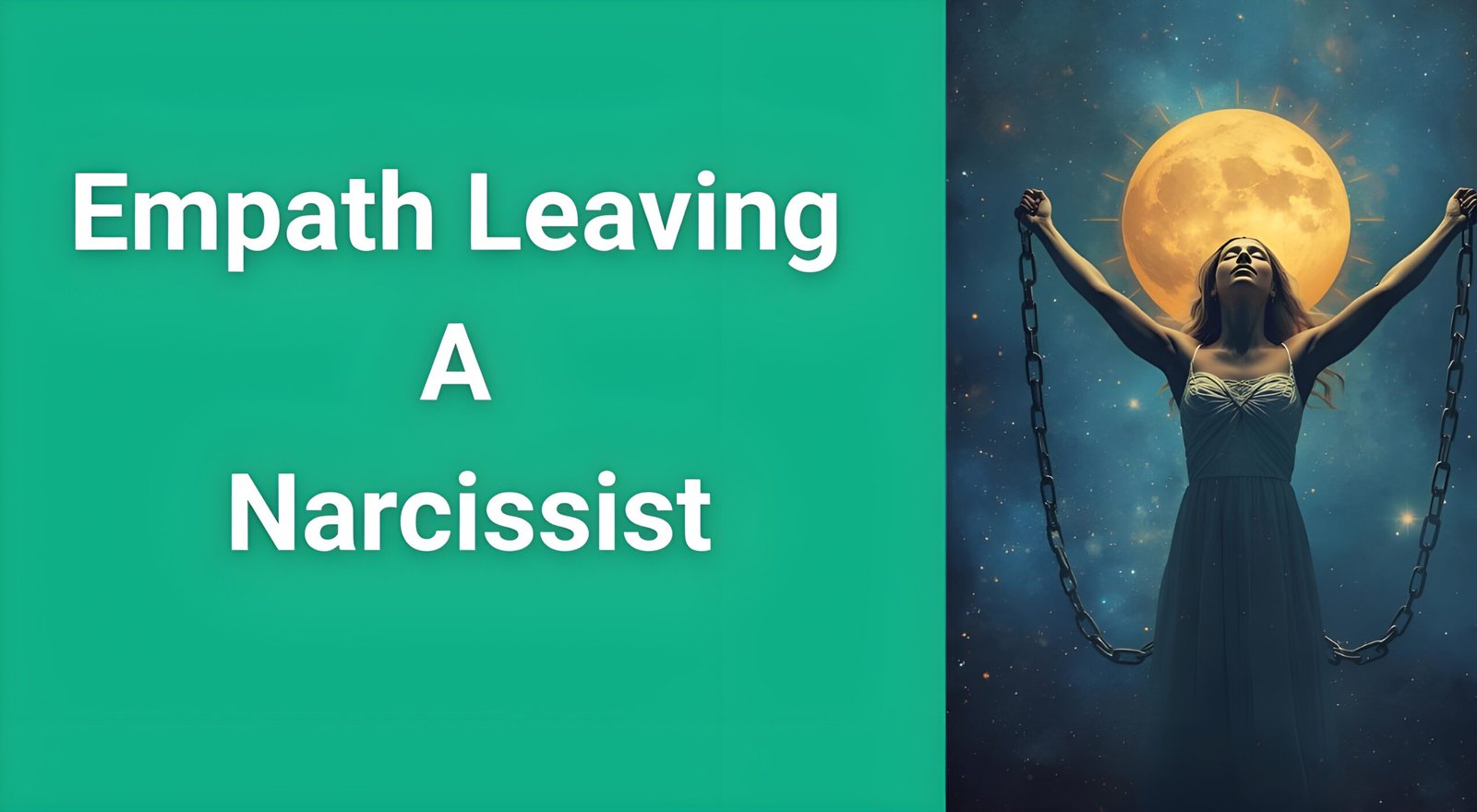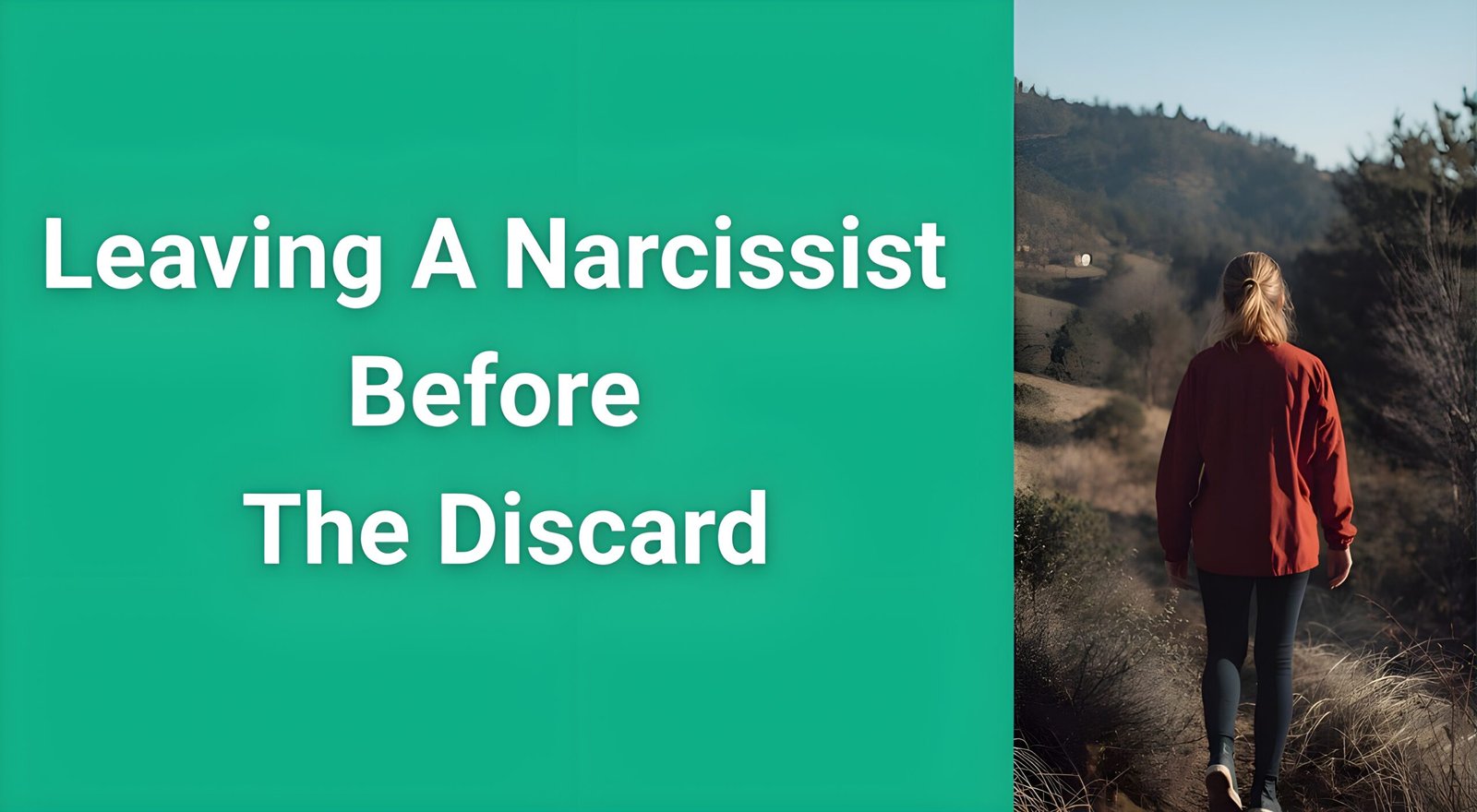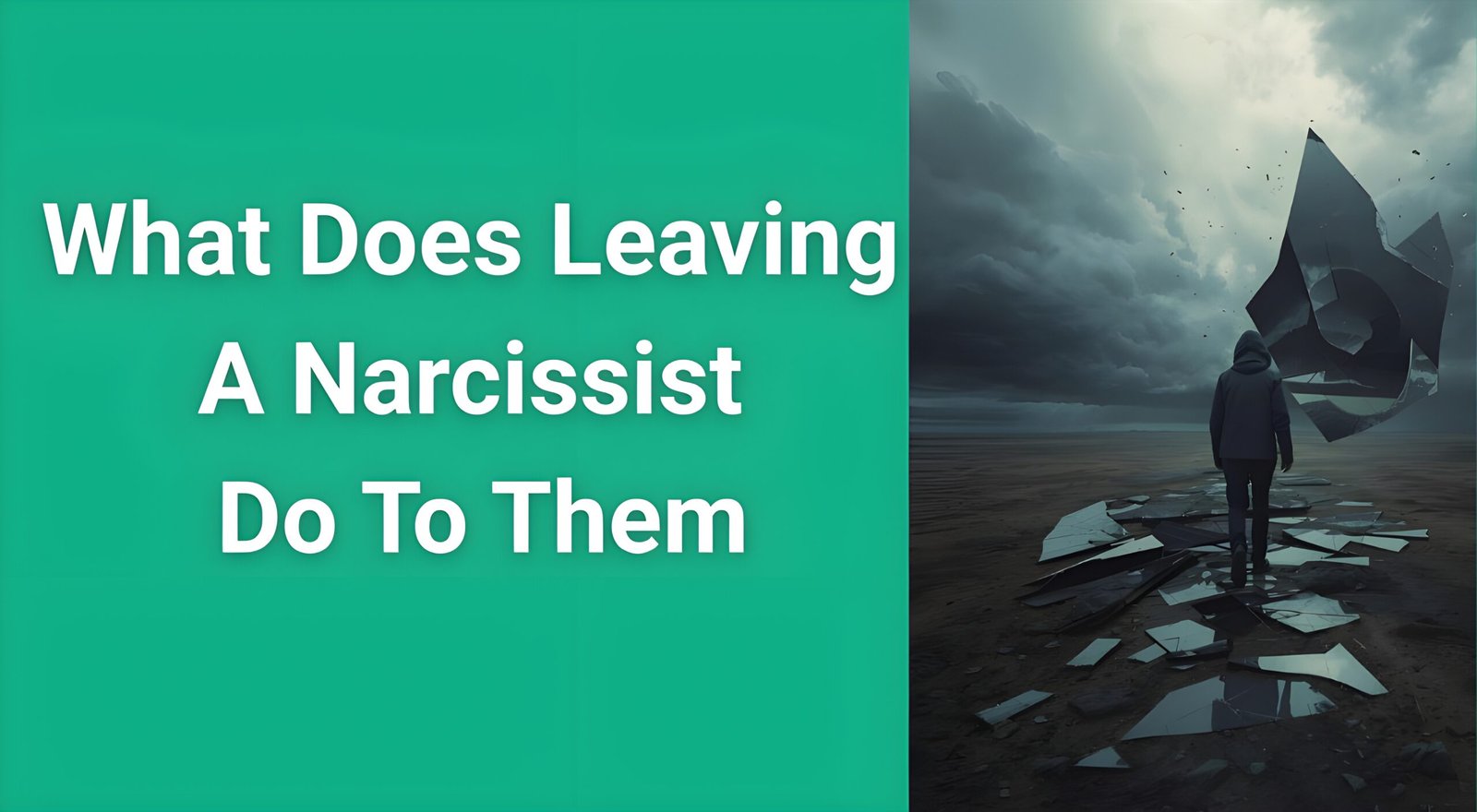If you’re an empath leaving a narcissist, you already know this isn’t just a typical breakup. The emotional intensity, confusion, and overwhelming sense of being trapped make this one of the most challenging relationship dynamics to escape. Yet here you are, recognizing that your empathic nature doesn’t mean you have to sacrifice your wellbeing for someone who drains your very essence.
- Understanding Why Empaths Get Trapped with Narcissists
- Recognizing When It’s Time to Leave
- The 7-Step Roadmap for Safely Leaving
- What Happens When You Finally Leave
- The Recovery and Healing Journey
- Building Your New Life After Leaving
- Red Flags to Avoid in Future Relationships
- Frequently Asked Questions
- Your Journey to Freedom Begins Now
The journey of an empath leaving a narcissist requires understanding, strategy, and immense courage. This isn’t about weakness or failure—it’s about recognizing your worth and reclaiming the power that’s rightfully yours.
Understanding Why Empaths Get Trapped with Narcissists
Empaths possess a remarkable ability to sense and absorb others’ emotions, often putting others’ needs before their own. Narcissists, meanwhile, have an insatiable need for admiration, control, and emotional supply. This creates a perfect storm where the narcissist feeds off the empath’s giving nature while the empath believes they can heal or save their partner.
The initial phase feels magical. The narcissist love-bombs the empath with intense attention, grand gestures, and promises of deep connection. For an empath who craves authentic emotional bonds, this feels like finding their soulmate. However, what follows is a gradual erosion of the empath’s identity through manipulation, gaslighting, and emotional abuse.
Understanding this dynamic is crucial because it explains why simply “leaving” feels impossible. You’re not dealing with just a relationship—you’re breaking free from a complex psychological trap designed to exploit your most beautiful qualities.
Recognizing When It’s Time to Leave
The decision for an empath leaving a narcissist often comes after reaching an emotional breaking point. Several signs indicate it’s time to prioritize your freedom:
The Walking on Eggshells Phenomenon: Every conversation feels like navigating a minefield. You constantly monitor your words, emotions, and reactions to avoid triggering their rage or silent treatment.
Complete Emotional Exhaustion: You feel drained, depleted, and empty. Your natural empathic abilities feel more like a burden than a gift because they’re constantly being exploited.
Loss of Personal Identity: You struggle to remember who you were before this relationship. Your interests, goals, and even your thoughts seem to revolve around managing their needs and emotions.
Isolation from Support Systems: Friends and family have either been driven away or you’ve distanced yourself because explaining the relationship feels impossible.
Physical and Mental Health Decline: Chronic stress, anxiety, depression, insomnia, or other health issues have emerged or worsened significantly.
The Cycle Never Breaks: Despite promises to change, the pattern of idealization, devaluation, and discard continues endlessly.
When these patterns become your reality, your empathic nature isn’t helping—it’s being weaponized against you.
The 7-Step Roadmap for Safely Leaving
Successfully leaving a narcissistic relationship requires careful planning and emotional preparation. Here’s your step-by-step guide:
Step 1: Accept the Reality of Your Situation
The hardest part of an empath leaving a narcissist is accepting that your love, understanding, and support cannot fix them. Narcissistic personality traits are deeply ingrained patterns that require intensive professional intervention—something most narcissists refuse to pursue.
Stop making excuses for their behavior or believing that “if you just love them enough,” they’ll change. This isn’t about giving up on someone; it’s about recognizing that you cannot save someone who doesn’t want to be saved.
Step 2: Build Your Support Network Secretly
Reach out to trusted friends, family members, or support groups—but do so carefully. Narcissists often monitor their partner’s communications and social interactions. Consider:
- Reconnecting with old friends you may have lost touch with
- Joining online support communities for narcissistic abuse survivors
- Finding a therapist who understands narcissistic abuse dynamics
- Identifying safe people who can provide emotional and practical support
Step 3: Secure Your Resources and Safety
Before making your exit, ensure you have the practical tools for independence:
- Financial security: Open a separate bank account, save money when possible, and gather important financial documents
- Legal documentation: Secure copies of identification, insurance papers, and any legal documents
- Safe communication: Create private email accounts and consider getting a separate phone
- Emergency planning: Identify safe places to go and people to contact if the situation escalates
Step 4: Document Everything
Keep a detailed record of abusive incidents, manipulative behaviors, and concerning interactions. This documentation can be crucial for legal proceedings, therapy, or simply validating your experiences when you doubt yourself.
Write down dates, times, witnesses, and specific details. Store this information securely where it cannot be discovered.
Step 5: Plan Your Exit Strategy
Never announce your intention to leave or give ultimatums. Instead, plan your exit carefully:
- Choose a time when they’re not present or are distracted
- Have transportation arranged
- Pack essential items beforehand and store them safely elsewhere
- Inform trusted individuals of your plan and timeline
- Consider the safest day and time based on their schedule and mood patterns
Step 6: Execute No Contact Immediately
The moment you leave, implement complete no contact. This means:
- Block their phone number, email, and all social media accounts
- Inform friends and family not to share information about you
- Change your routines and locations they might expect to find you
- Consider changing your phone number if harassment continues
- Avoid places where you might encounter them
No contact isn’t cruel—it’s essential for breaking the trauma bond and protecting your recovery.
Step 7: Prepare for Their Reactions
Narcissists typically respond to abandonment with a predictable pattern:
Initial Shock and Disbelief: They may be genuinely surprised that you left what they perceived as the “perfect” relationship.
Love-Bombing Attempts: Expect grand gestures, promises to change, and intense displays of affection designed to draw you back.
Rage and Retaliation: When love-bombing fails, they may become vengeful, spreading lies, attempting to damage your relationships or reputation.
Finding New Supply: Eventually, they’ll move on to someone new, though they may still attempt to hoover you back periodically.
Knowing these patterns helps you stay strong during difficult moments.
What Happens When You Finally Leave
The initial days and weeks after an empath leaves a narcissist bring a complex mix of emotions. Understanding what’s normal helps you navigate this challenging transition:
Immediate Relief and Terror: You’ll likely feel simultaneously liberated and terrified. The relief of no longer walking on eggshells battles with the fear of being alone and the withdrawal symptoms of breaking a trauma bond.
Trauma Bond Withdrawal: Your brain has been conditioned to crave the intermittent reinforcement of the narcissistic cycle. You may experience physical and emotional withdrawal symptoms similar to addiction recovery.
Identity Confusion: After losing yourself in the relationship, you may feel uncertain about who you are, what you want, or how to make decisions independently.
Grief and Loss: Despite the abuse, you’ll likely grieve the loss of the relationship, the person you thought they were, and the future you had imagined.
Self-Doubt and Second-Guessing: Your conditioned response may be to blame yourself or wonder if you made a mistake. This is normal and temporary.
These feelings don’t mean you made the wrong choice. They’re part of the healing process that every empath leaving a narcissist must navigate.
The Recovery and Healing Journey
Healing from narcissistic abuse requires intentional effort and often professional support. Your recovery journey involves several crucial phases:
Immediate Stabilization Phase (First 30 Days)
Focus on basic safety and stability. This isn’t the time for major life decisions—it’s about creating a secure foundation for healing.
During this critical period, having a structured approach can make the difference between falling back into old patterns and breaking free permanently. Many survivors find that following a systematic recovery program helps them navigate the emotional chaos of early recovery.
For those ready to address the deep neurological addiction that trauma bonds create, specialized resources like the 30 Day Trauma Bond Recovery Workbook provide science-based strategies for rewiring your brain’s response to the narcissist. This isn’t about willpower—it’s about understanding and changing the brain chemistry that makes leaving feel impossible.
Processing and Understanding Phase (30-90 Days)
Begin working with a therapist who understands narcissistic abuse. This phase involves:
- Processing the trauma you experienced
- Understanding how narcissistic abuse affects empaths specifically
- Learning to distinguish your emotions from those you absorbed
- Developing healthy coping mechanisms
If you’re still questioning the reality of your experience or wondering whether you truly dealt with narcissistic abuse, consider getting professional clarity. Sometimes, having an expert analyze your specific situation can provide the validation and understanding you need to move forward confidently.
The Narcissistic Abuse Clarity Report offers personalized analysis from specialists who understand exactly what empaths experience in these relationships. Getting professional confirmation of your experience can be incredibly healing and help you avoid future toxic relationships.
Rebuilding and Growth Phase (3-12 Months)
This phase focuses on reconstructing your identity and building a healthier future:
- Rediscovering your interests, values, and goals
- Learning to trust your intuition again
- Setting and maintaining healthy boundaries
- Building authentic relationships based on mutual respect
For empaths who cannot immediately leave their situation—whether due to financial constraints, shared children, or other circumstances—it’s important to know that you can still protect yourself and begin healing while developing an eventual exit strategy.
Understanding how to survive and maintain your sanity in impossible situations becomes crucial during this phase.
Long-term Recovery and Thriving (12+ Months)
Eventually, you’ll move from surviving to thriving. This phase involves:
- Using your experience to help others
- Developing a deeper understanding of healthy relationship dynamics
- Embracing your empathic gifts without allowing them to be exploited
- Creating a life aligned with your authentic values and needs
Building Your New Life After Leaving
Creating a new life after escaping narcissistic abuse requires intentional choices and patience with yourself. Here’s how to build something beautiful from the ashes:
Reconnect with Your Authentic Self
Start small by noticing your preferences without considering how others might react. What music do you enjoy? What foods do you crave? What activities bring you joy? These simple awareness exercises help rebuild your sense of self.
Establish Healthy Boundaries
Learn to say no without elaborate explanations. Practice expressing your needs directly. Recognize that disappointing others doesn’t make you responsible for their emotions—a revolutionary concept for many empaths.
Choose Relationships Wisely
Take time to observe people’s actions, not just their words. Look for consistency, respect, and reciprocity. Healthy people will respect your boundaries and support your growth, not exploit your empathic nature.
Embrace Your Empathic Gifts Safely
Your sensitivity and compassion are beautiful qualities, but they need protection. Learn to use your empathic abilities intentionally rather than being overwhelmed by everyone else’s emotions.
Create Meaning from Your Experience
Many empaths find purpose in helping others who face similar struggles. Whether through informal support, volunteering, or professional development, your experience can become a source of healing for others.
Red Flags to Avoid in Future Relationships
Having survived a narcissistic relationship, you’re now equipped with hard-earned wisdom about relationship red flags:
- Love-bombing or excessive early intensity
- Attempts to isolate you from friends and family
- Gaslighting or making you question your reality
- Lack of empathy for your feelings or experiences
- Explosive anger when they don’t get their way
- Constant need for admiration and attention
- Inability to take responsibility for their actions
- Using guilt, shame, or fear to control you
Trust your instincts. If something feels off, it probably is.
Frequently Asked Questions
How long does it take for an empath to recover from leaving a narcissist?
Recovery timelines vary significantly based on the relationship’s length, abuse severity, and individual factors. Most empaths notice significant improvement within 3-6 months, with continued growth over 1-2 years. Remember, healing isn’t linear—some days will be harder than others.
Will the narcissist really leave me alone if I go no contact?
Most narcissists eventually find new sources of supply and lose interest in pursuing former partners. However, some may continue hoovering attempts periodically. Maintaining strict no contact and documenting any harassment is essential for your safety and legal protection.
How do I know if I’m an empath or just codependent?
While there’s overlap, empaths naturally sense others’ emotions even outside relationships, whereas codependency specifically involves losing yourself in relationships to feel worthy. Many empaths develop codependent patterns as survival mechanisms in toxic relationships.
What if we have children together?
Co-parenting with a narcissist requires special strategies including parallel parenting (minimal direct contact), documenting interactions, using court-approved communication apps, and protecting your children through appropriate legal channels when necessary.
How do I trust my judgment in future relationships?
Start by trusting yourself in small, low-stakes situations and gradually build confidence. Work with a therapist to process your experience and develop healthy relationship skills. Take new relationships slowly and pay attention to actions over words.
What if I can’t afford therapy or professional help?
Many communities offer free or sliding-scale mental health services. Online support groups, self-help books, and educational resources can provide valuable support. Crisis hotlines are available 24/7 for immediate support.
Your Journey to Freedom Begins Now
The path of an empath leaving a narcissist is challenging but absolutely possible. You’ve already taken the most difficult step by recognizing the need for change and seeking information about how to protect yourself.
Remember that your empathic nature isn’t a weakness—it’s a superpower that deserves protection, not exploitation. You have the right to relationships that nurture rather than drain you, partners who celebrate rather than diminish you, and a life that reflects your authentic values and dreams.
Your journey to freedom won’t be easy, but every step away from toxicity is a step toward the life you deserve. Trust in your strength, lean on your support system, and remember that thousands of empaths have walked this path before you and emerged stronger, wiser, and more authentically themselves.
The cage door is open. All you have to do is step through it.






